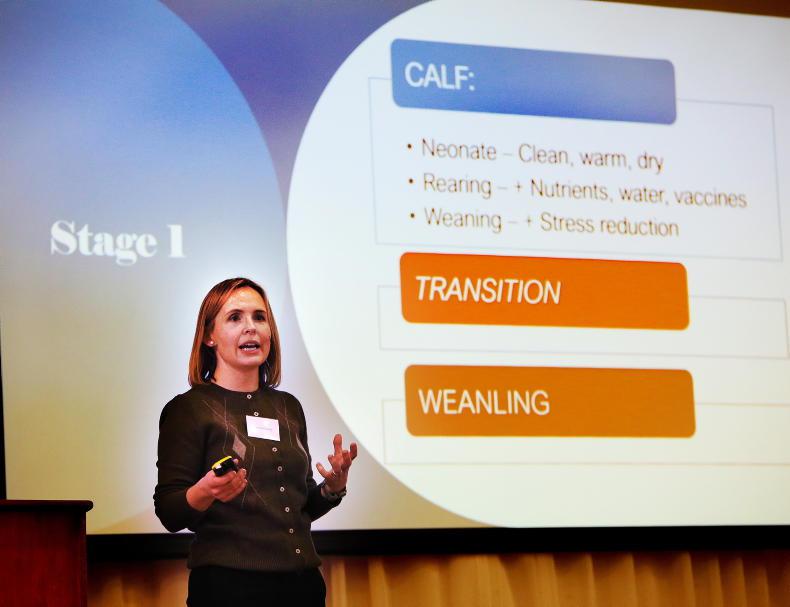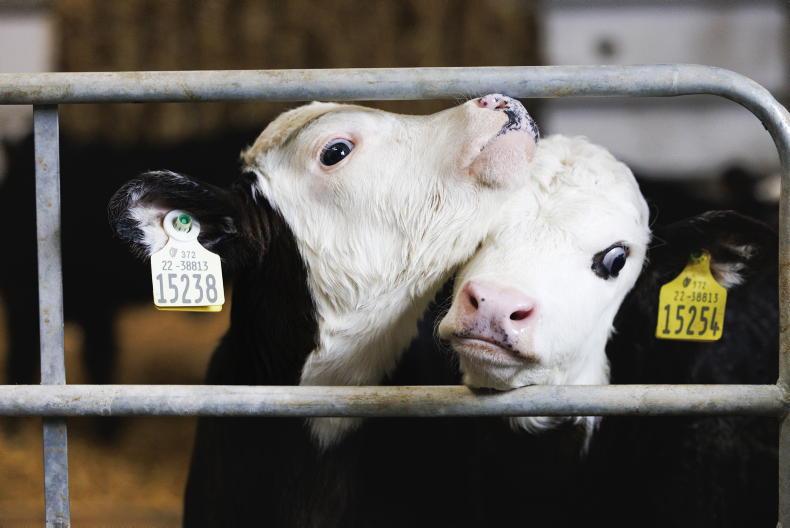Farmers were encouraged to become more open about their mental health at an event in Park, Co Derry, last week.
“Farming men will easily talk about a bad back or sore knee, but they find it difficult to talk to family or a health professional about their feelings,” Sharon Smyth from Rural Support said.
She maintained that this reluctance usually stems from a worry that they will be perceived as weak or a failure.
“It is a fear of ‘what will the neighbours say’,” Smyth suggested.
Farming men will easily talk about a bad back or sore knee, but they find it difficult to talk to family or a health professional about their feelings
At the event, the local discussion group of around 40 farmers produced a lengthy list of factors that can create stress and affect the mental health of farmers.
In each of the four sub-groups, weather topped the list. Other factors included farmgate prices, input costs, disease outbreaks, inspections, bureaucracy and Brexit uncertainty.
The group was told how to spot common signs that someone is having difficulties with their mental health and well-being.
Indicators
Common indicators include physical signs, such as constant fatigue, or behavioural changes, like sleeping difficulties, as well as mental and emotional factors, including problems with concentration and confidence.
“Remember, we are looking for changes in how people are normally,” Smyth said.
“If someone is not themselves, it is worth checking it out by having a talk at a suitable place and time when there is little chance of being interrupted,” she added.
If someone is not themselves, it is worth checking it out by having a talk at a suitable place and time when there is little chance of being interrupted
The advice from Rural Support is to not pressurise the person into opening up about their emotional wellbeing if they are not ready.
When the person does start to open up, it is helpful to listen closely, express empathy and show understanding.
“Encourage them to seek help and steer them towards talking to a relative or health professional, or calling a support helpline,” Smyth said.
Suicide
At the event, Emma-Louise Kells from Rural Support gave farmers advice on how to talk to someone who might be experiencing life-threatening difficulties with their mental health.
“Don’t be afraid to use the word ‘suicide’. It won’t put the idea in their head, but it will give them the chance to talk about their struggle and it demonstrates that somebody cares,” she said.
Kells maintained that the question must be asked very directly, but in a way that is genuine and does not cast judgement.
“Don’t ask them ‘You aren’t thinking of doing something stupid?’ Instead, say something like ‘Are you thinking of taking your life?’”
Don’t be afraid to use the word ‘suicide’. It won’t put the idea in their head, but it will give them the chance to talk about their struggle
If the person is contemplating suicide, the advice is to initially identify someone that both parties can contact together, such as a relative or friend, and then encourage the person to get professional support.
“If you suspect a suicide attempt may be imminent, get help immediately by calling 999, or work with them so that they agree to go with you or someone else to an A&E or local GP,” Kells said.
Recognising signs of struggling
mental health
Physical
Tired, constant fatigue, headaches, upset stomach, muscle tension and pains.Behavioural
Sleep difficulties, changed appetite, increased use of alcohol, caffeine or nicotine, loss of interest in activities, mood swings, socially withdrawn, decline in productivity.Mental
Difficulty concentrating, forgetfulness, obsessive thinking, negative thoughts, persistent worrying.Emotional
Irritable, impatient, lack of usual confidence, feelings of hopelessness, guilt or worthlessness.
Read more
The Front Row: the art of mental health
Suicide rates in vets among the highest of any occupation in Ireland
Farmers were encouraged to become more open about their mental health at an event in Park, Co Derry, last week.
“Farming men will easily talk about a bad back or sore knee, but they find it difficult to talk to family or a health professional about their feelings,” Sharon Smyth from Rural Support said.
She maintained that this reluctance usually stems from a worry that they will be perceived as weak or a failure.
“It is a fear of ‘what will the neighbours say’,” Smyth suggested.
Farming men will easily talk about a bad back or sore knee, but they find it difficult to talk to family or a health professional about their feelings
At the event, the local discussion group of around 40 farmers produced a lengthy list of factors that can create stress and affect the mental health of farmers.
In each of the four sub-groups, weather topped the list. Other factors included farmgate prices, input costs, disease outbreaks, inspections, bureaucracy and Brexit uncertainty.
The group was told how to spot common signs that someone is having difficulties with their mental health and well-being.
Indicators
Common indicators include physical signs, such as constant fatigue, or behavioural changes, like sleeping difficulties, as well as mental and emotional factors, including problems with concentration and confidence.
“Remember, we are looking for changes in how people are normally,” Smyth said.
“If someone is not themselves, it is worth checking it out by having a talk at a suitable place and time when there is little chance of being interrupted,” she added.
If someone is not themselves, it is worth checking it out by having a talk at a suitable place and time when there is little chance of being interrupted
The advice from Rural Support is to not pressurise the person into opening up about their emotional wellbeing if they are not ready.
When the person does start to open up, it is helpful to listen closely, express empathy and show understanding.
“Encourage them to seek help and steer them towards talking to a relative or health professional, or calling a support helpline,” Smyth said.
Suicide
At the event, Emma-Louise Kells from Rural Support gave farmers advice on how to talk to someone who might be experiencing life-threatening difficulties with their mental health.
“Don’t be afraid to use the word ‘suicide’. It won’t put the idea in their head, but it will give them the chance to talk about their struggle and it demonstrates that somebody cares,” she said.
Kells maintained that the question must be asked very directly, but in a way that is genuine and does not cast judgement.
“Don’t ask them ‘You aren’t thinking of doing something stupid?’ Instead, say something like ‘Are you thinking of taking your life?’”
Don’t be afraid to use the word ‘suicide’. It won’t put the idea in their head, but it will give them the chance to talk about their struggle
If the person is contemplating suicide, the advice is to initially identify someone that both parties can contact together, such as a relative or friend, and then encourage the person to get professional support.
“If you suspect a suicide attempt may be imminent, get help immediately by calling 999, or work with them so that they agree to go with you or someone else to an A&E or local GP,” Kells said.
Recognising signs of struggling
mental health
Physical
Tired, constant fatigue, headaches, upset stomach, muscle tension and pains.Behavioural
Sleep difficulties, changed appetite, increased use of alcohol, caffeine or nicotine, loss of interest in activities, mood swings, socially withdrawn, decline in productivity.Mental
Difficulty concentrating, forgetfulness, obsessive thinking, negative thoughts, persistent worrying.Emotional
Irritable, impatient, lack of usual confidence, feelings of hopelessness, guilt or worthlessness.
Read more
The Front Row: the art of mental health
Suicide rates in vets among the highest of any occupation in Ireland










SHARING OPTIONS